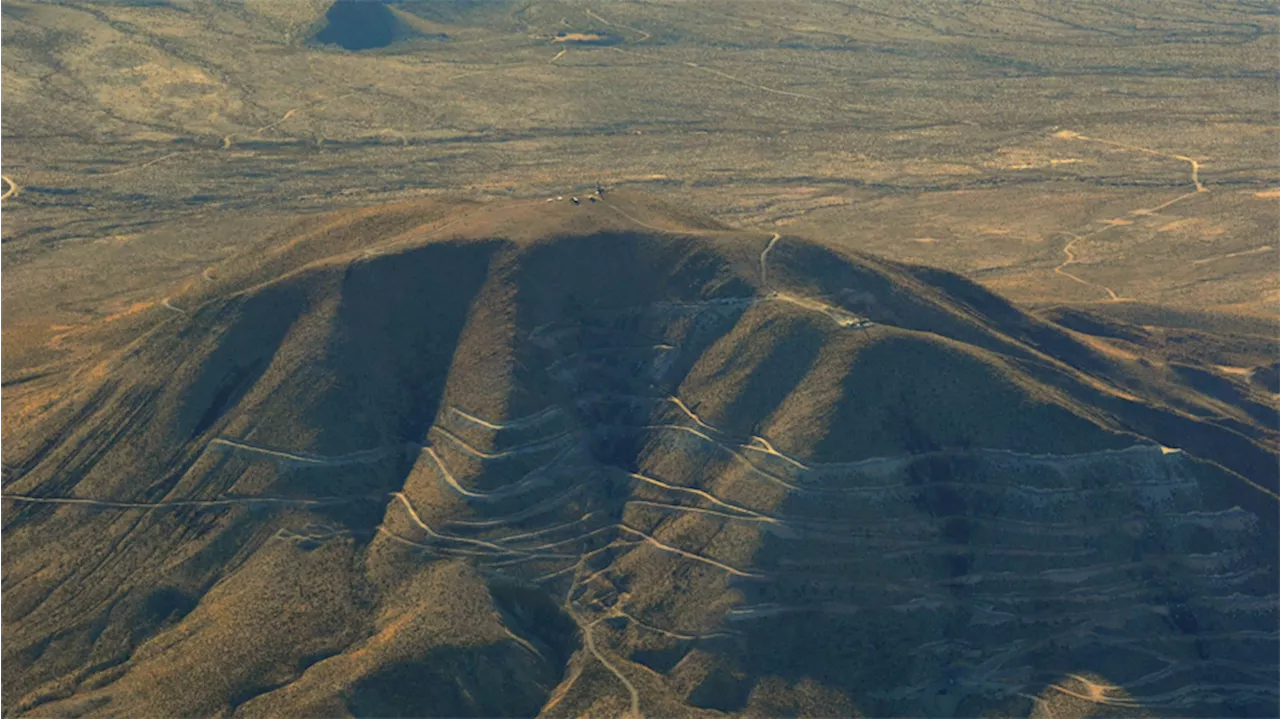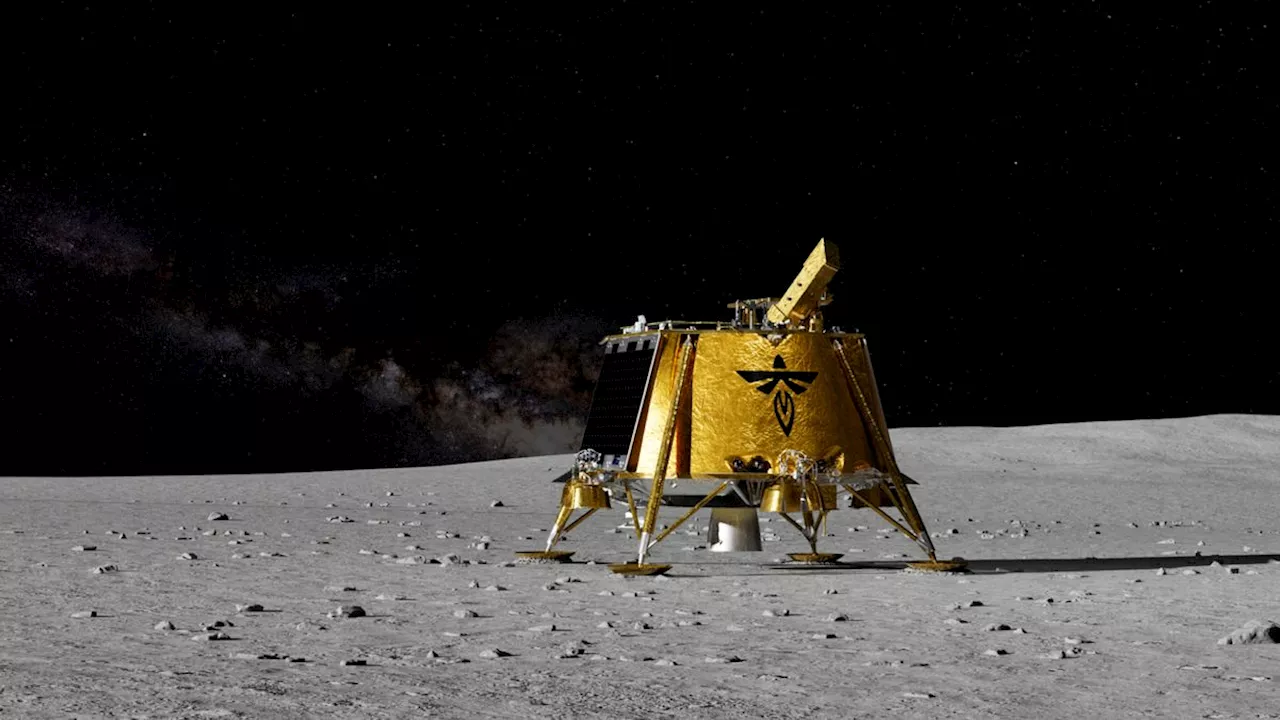A new study disputes the claim that global emissions reductions during the COVID-19 lockdown caused a dip in lunar surface temperatures. While previous research suggested a link between the lockdown and the temperature drop, a new paper argues that other factors, such as the gradual decline in temperatures observed before the lockdown, might be responsible.
This view shows the thin crescent moon setting over ESO’s Paranal Observatory in Chile. As well as the bright crescent, the rest of the disc of the moon can be faintly seen. This phenomenon, called Earthshine, is due to sunlight reflecting off Earth and illuminating the lunar surface.Scientists have been arguing about a curious topic recently: Did temperatures on the moon dip due to the world's Covid-19 lockdown?, causing a slight dip in lunar surface temperatures.
"The process in reality is very complex, and I believe not all factors were considered," Shirin Haque, a researcher at the University of the West Indies in Trinidad, told Space.com by email. Haque and her colleague presented a dissenting view of the original data."That is what may have led them to the conclusion they arrived at.
They pointed to the timing of the temperature drop. While the Prasad-Ambily paper highlights the measurements taken between April and May, the Haque paper notes that the temperature starts to drop in 2019, before the worldwide lockdown took place. The drop is gradual, they argue, not sudden."Schonberg and Haque have claimed that the temperature began dropping earlier by visually analyzing the trendline" on a figure in the Prasad-Ambily paper, he said.
The new paper also pointed to another significant temperature drop in 2018, one that Prasad and Ambily had also noted. That drop clearly wasn't related to the Covid shutdown, and the authors suggested that it could be significant. Haque and Schonberg said they appreciate that their colleagues are open to other causes. However, they said that the very title of the original article —"Effects of Covid-19 global lockdown on our moon" — appears to negate that uncertainty.
LUNAR TEMPERATURE EARTHSHINE COVID-19 LOCKDOWN ATMOSPHERIC CHANGES CLIMATE SCIENCE
United States Latest News, United States Headlines
Similar News:You can also read news stories similar to this one that we have collected from other news sources.
 Alien: Earth Teaser Unveils Xenomorph Crash Towards EarthFX's new 'Alien' series, 'Alien: Earth', premieres on Hulu this summer, promising a terrifying continuation of the sci-fi horror franchise. A teaser reveals a xenomorph crash landing a spaceship on Earth, setting the stage for a desperate fight for survival.
Alien: Earth Teaser Unveils Xenomorph Crash Towards EarthFX's new 'Alien' series, 'Alien: Earth', premieres on Hulu this summer, promising a terrifying continuation of the sci-fi horror franchise. A teaser reveals a xenomorph crash landing a spaceship on Earth, setting the stage for a desperate fight for survival.
Read more »
 USA Rare Earth Achieves Breakthrough in Domestic Rare Earth ProductionUSA Rare Earth successfully produces high-purity dysprosium oxide from its Texas Round Top deposit, marking a significant advancement in domestic rare earth production.
USA Rare Earth Achieves Breakthrough in Domestic Rare Earth ProductionUSA Rare Earth successfully produces high-purity dysprosium oxide from its Texas Round Top deposit, marking a significant advancement in domestic rare earth production.
Read more »
 Detecting Methane on Earth-like Exoplanets: A Promising Path to Finding Life Beyond EarthA new study published in The Astronomical Journal explores the potential of using a statistical method called BARBIE to detect methane on Earth-like exoplanets. The study highlights the importance of methane as a biosignature and the challenges associated with its detection in the presence of other atmospheric components like water. The Habitable Worlds Observatory (HWO), planned for launch in the 2040s, will utilize advanced techniques to search for methane and other biosignatures on potentially habitable exoplanets, advancing our quest to find life beyond Earth.
Detecting Methane on Earth-like Exoplanets: A Promising Path to Finding Life Beyond EarthA new study published in The Astronomical Journal explores the potential of using a statistical method called BARBIE to detect methane on Earth-like exoplanets. The study highlights the importance of methane as a biosignature and the challenges associated with its detection in the presence of other atmospheric components like water. The Habitable Worlds Observatory (HWO), planned for launch in the 2040s, will utilize advanced techniques to search for methane and other biosignatures on potentially habitable exoplanets, advancing our quest to find life beyond Earth.
Read more »
 Firefly Moon Lander to Study Earth's MagnetosphereFirefly Aerospace's Blue Ghost moon lander will help NASA study Earth's magnetosphere and how it responds to space weather. The lander will carry the LEXI instrument, which will capture low-energy X-rays generated when the solar wind interacts with Earth's magnetic field.
Firefly Moon Lander to Study Earth's MagnetosphereFirefly Aerospace's Blue Ghost moon lander will help NASA study Earth's magnetosphere and how it responds to space weather. The lander will carry the LEXI instrument, which will capture low-energy X-rays generated when the solar wind interacts with Earth's magnetic field.
Read more »
 Earth scientists study Sikkim flood in India to help others prepare for similar disastersExperts from the global Earth science community have pieced together what happened during the massive Sikkim flood to try to help others prepare for similar disasters.
Earth scientists study Sikkim flood in India to help others prepare for similar disastersExperts from the global Earth science community have pieced together what happened during the massive Sikkim flood to try to help others prepare for similar disasters.
Read more »
 Earth's Water Arrived Later Than Thought: New Study Sheds Light on the Origins of LifeA groundbreaking study led by Rutgers University scientists reveals that water arrived on Earth later than previously thought, potentially impacting the timeline of life's emergence. The research suggests that water was delivered in smaller quantities after the Moon's formation, challenging the dominant theory of a major water influx during that event.
Earth's Water Arrived Later Than Thought: New Study Sheds Light on the Origins of LifeA groundbreaking study led by Rutgers University scientists reveals that water arrived on Earth later than previously thought, potentially impacting the timeline of life's emergence. The research suggests that water was delivered in smaller quantities after the Moon's formation, challenging the dominant theory of a major water influx during that event.
Read more »
